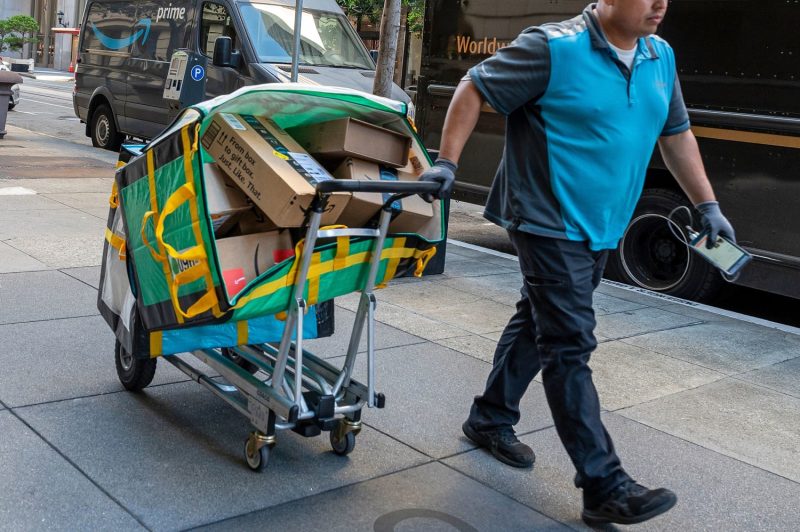Amazon Sued by D.C. AG for Allegedly Excluding Neighborhoods from Prime Delivery
The recent lawsuit filed against Amazon by the Attorney General of Washington D.C. has brought to light concerning issues regarding the exclusion of certain neighborhoods from the company’s Prime delivery service. This legal action underscores the importance of equitable access to essential services for all residents, especially during times of increased reliance on online shopping and home delivery.
The lawsuit alleges that Amazon’s Prime delivery service discriminates against predominantly Black and Latino neighborhoods in the nation’s capital. By reportedly using data on race, Amazon is accused of intentionally excluding certain areas from its expedited delivery services, thereby exacerbating existing disparities in access to goods and services. This practice raises serious questions about algorithmic bias and its impact on marginalized communities.
Amazon’s Prime delivery service is marketed as a premium offering that promises fast and convenient delivery of a wide range of products. However, if certain neighborhoods are systematically excluded from this service based on factors such as race or income level, it raises concerns about the company’s commitment to serving all customers equally. The lawsuit seeks to hold Amazon accountable for potentially discriminatory practices that may harm residents of underserved communities.
As the COVID-19 pandemic has accelerated the shift towards online shopping and home delivery, the importance of reliable and equitable delivery services has become increasingly apparent. Many residents, especially those in vulnerable communities, rely on e-commerce platforms like Amazon for essential items. The exclusion of certain neighborhoods from Prime delivery could further widen the gap in access to goods and services, leading to inequities in health, well-being, and economic opportunities.
In response to the lawsuit, Amazon has stated that it does not consider race when making delivery decisions and is committed to providing fast and reliable service to all customers. However, the allegations raised by the Attorney General of Washington D.C. highlight the need for greater transparency and accountability in how companies like Amazon deploy their delivery services. Addressing any potential bias in algorithms and ensuring equal access for all customers should be a priority for e-commerce companies.
The outcome of this legal action against Amazon will likely have broader implications for the tech industry and the use of data-driven algorithms in service delivery. It serves as a reminder that digital platforms have a responsibility to uphold principles of fairness and non-discrimination in their operations. By shining a spotlight on the issue of neighborhood exclusion from Prime delivery, the lawsuit prompts a critical examination of how technology can either reinforce or challenge existing social inequities.
In conclusion, the lawsuit against Amazon for allegedly excluding neighborhoods from its Prime delivery service underscores the importance of addressing discriminatory practices in the digital economy. By ensuring that all residents have equal access to essential services like fast and reliable delivery, companies can contribute to a more equitable society where everyone has the opportunity to benefit from the convenience of e-commerce. This legal action serves as a wake-up call for the tech industry to prioritize fairness, transparency, and accountability in their business practices.
